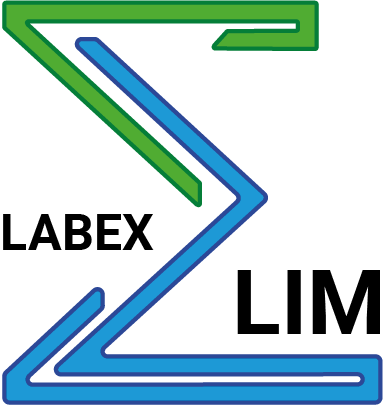Valorization
The LABEX valorization policy is oriented following 2 axes: scientific promotion (publications, conferences, patents, etc.) and economic promotion: creation or reinforcement of start-ups and transfer centers, creation (or durability) of common labs with our industrial partners.
The LABEX benefits from a strong culture of valorization through its two partner laboratories: XLIM and IRCER, which strongly involved in technology transfer and oriented towards industry, illustrated in particular by:
 common laboratories with companies
common laboratories with companies
(Air Liquide, Cilas (2), Thales Alenia Space, NXP, III-V lab, Inoveos, Air liquide, Safran-Oerlikon),
![]() corresponding laboratories with CEA,
corresponding laboratories with CEA,
 industrial collaborations since 2001
industrial collaborations since 2001
![]() creations of startups since 2001
creations of startups since 2001
(3D Ceram, Ceradrop, GST, Ferlim, AMCAD Engineering, Devopsys, Pearl, Leukos, Horus Laser, Wytek, Novae, Glophotonics, Airmems, TCM, KAMAX Innovative System, Dyameo, Addidream, 3D Minerals, GAT, NAIoBEE and so on)
 brevets déposés depuis 2015
brevets déposés depuis 2015
The activities of XLIM and IRCER are characterized by a significant socio-economic impact in the domains of environment, energy, telecommunications, space, security, instrumentation, health, consumer and specialized digital content.
Σ-LIM also relies on structures whose effectiveness in project detection, start-up project maturation and support for patents has been demonstrated for several years: competiveness clusters (Ceramic and Alpha-RLH), transfer centers (CISTEME, CTTC, CITRA), AVRUL (University Valorization), SPV (CNRS Valorization), Nouvelle Aquitaine Region.
AVRUL, in particular, has a key role on local promotion for XLIM and IRCER. It supports the labs for the detection of innovative projects, their maturation and goes as far as to accompany “carriers” in their creation of companies in the Region, at the legislative level, as well as financial and administrative ones. Thanks to this structure, the University of Limoges ranks in 2019, top one national for the number of industrial property contracts signed and 4th for the number of start-up creation.
 |
 |
 |

